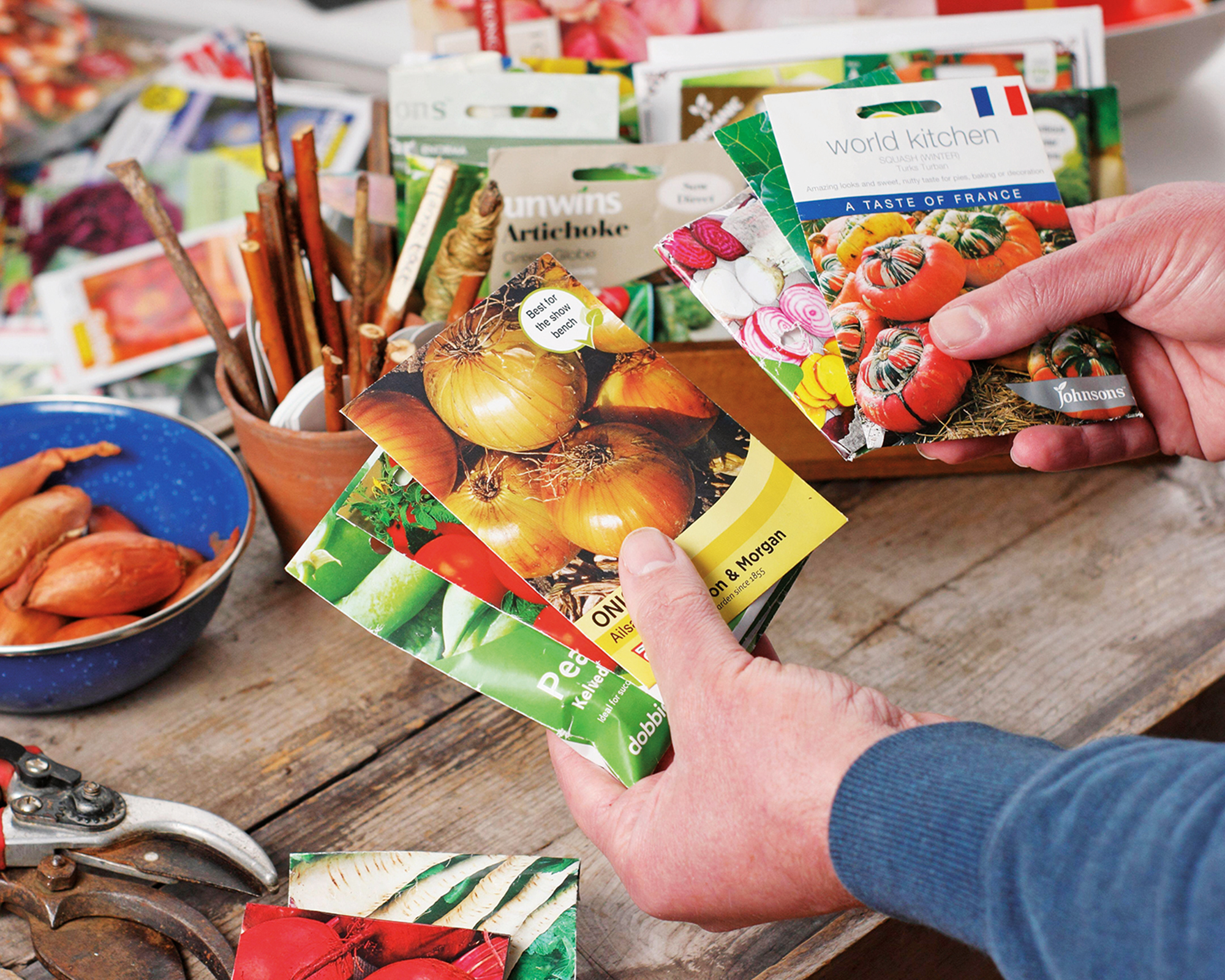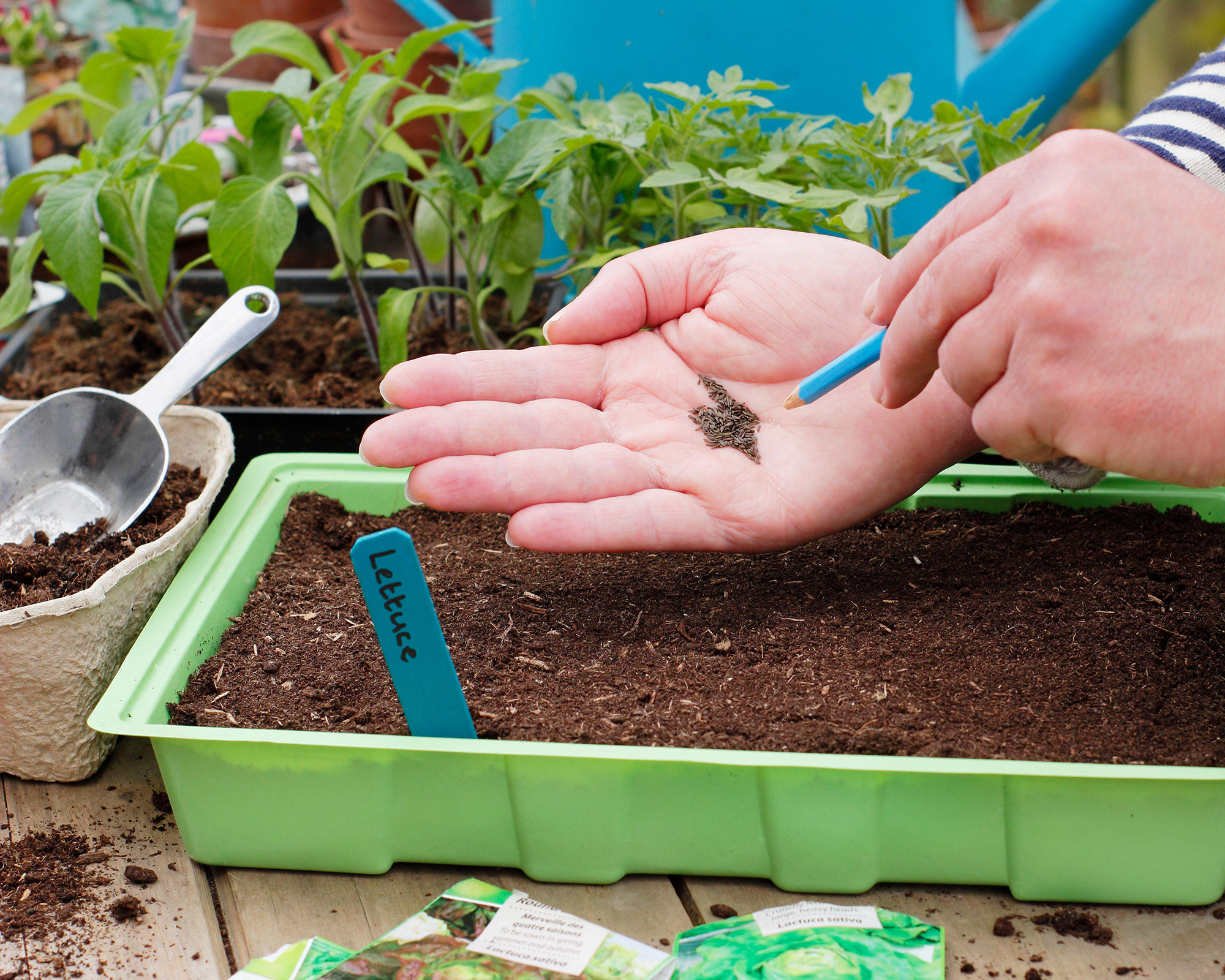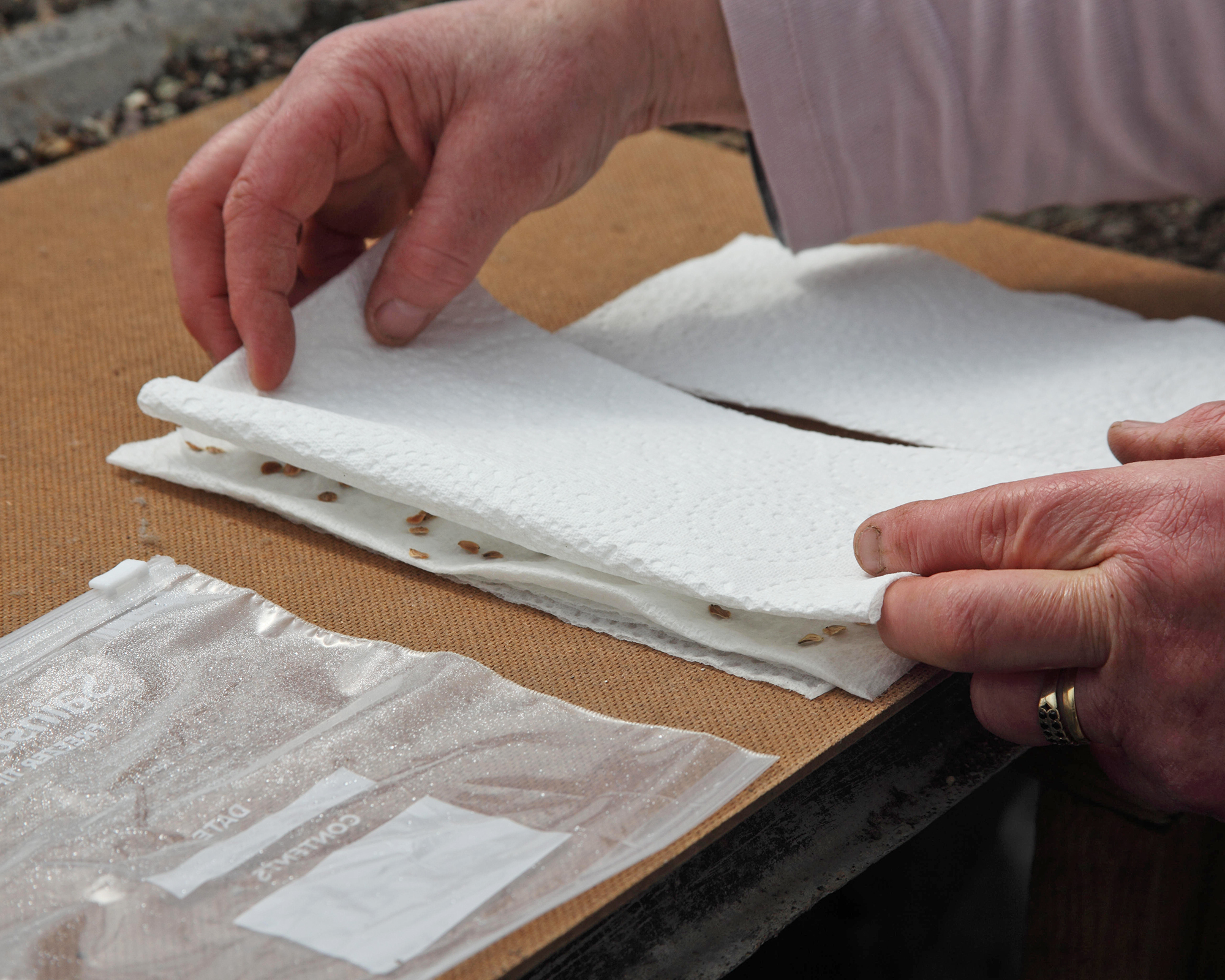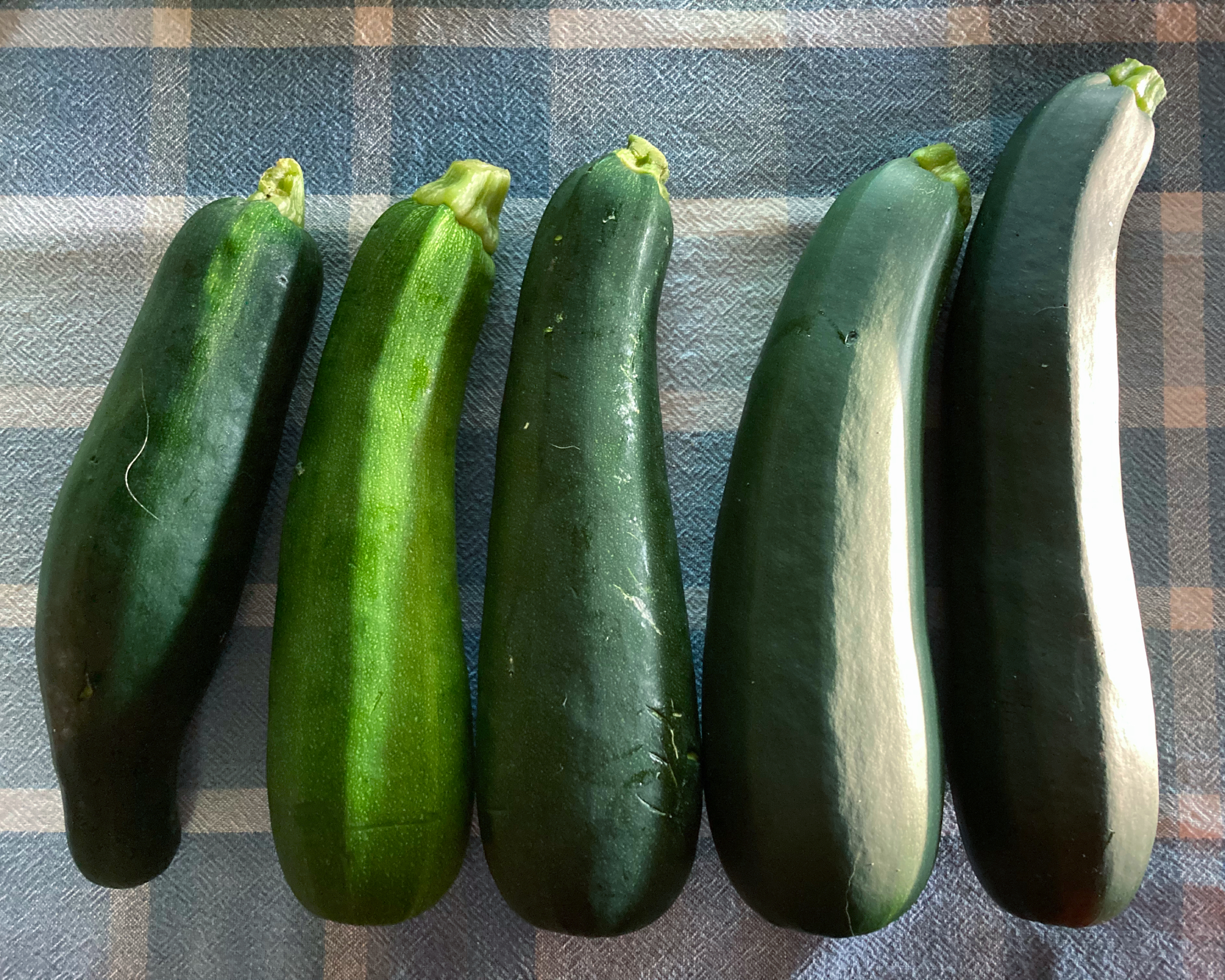Do Seeds Expire? I Grew Vegetables All Summer Long With With Seeds That Expired Years Ago
Content Editor Laura answers the question, "Do seeds expire?" and shares how she grew a thriving vegetable garden with seeds long past their expiration date.

Tonya Barnett
Sign up for the Gardening Know How newsletter today and receive a free copy of our e-book "How to Grow Delicious Tomatoes".
You are now subscribed
Your newsletter sign-up was successful
If you’re anything like me, you always end up with way more seeds than you can possibly grow in one season. If you’re also like me, you don’t want to waste anything—even the few dollars you spent on a packet of seeds.
That’s why I always end up with seeds that are long past their expiration date. But to me, expiration dates are just a suggestion. Planting old seeds will often result in tasty vegetables and beautiful flowers. I know that firsthand. A few years ago, I grew an entire container vegetable garden from all expired seeds.
I'll explain how I did an easy seed viability test to check if my seeds would still grow. Plus, I'll share some tips about how I grew my expired seeds into a thriving garden that produced all summer long.
Benefits of Growing Expired Seeds
Many people begin gardening not only as a means to grow healthy and nutritious fruits and vegetables, but also to save money. However, every season, gardeners find themselves left with unused seeds. There are many ways to store leftover seeds that will help keep them viable for the following year or even the next several years.
Saving leftover seeds not only saves you money you would normally spend on new seeds, but it's also a good sustainable seed starting idea to adopt. Throwing out usable seeds just because they're past the expiration date wastes seeds, the materials in which they were packaged, and the fossil fuels it required to transport the seeds from where they were grown to your doorstep.
Finding creative ways to use leftover seeds, whether that's growing them the way I did or turning them into bird food, is an easy way to grow a more sustainable garden. And grow more of your favorite plants for less money!

Understanding Seed Expiration Dates
If you look on the back of your seed packet, there should be some type of date information, at least if you bought them from a reputable company like Eden Brothers. For example, it may have a “packed for” date, which is a recommendation for the year you should grow those seeds.
Sign up for the Gardening Know How newsletter today and receive a free copy of our e-book "How to Grow Delicious Tomatoes".
As with many items from the grocery store, you may see a “sell by” or “best by” date, which indicates when the seeds will germinate and grow with the most success.
Additionally, many seed packages include a “sow by” date, which doesn’t represent the freshness of the seeds, but rather the resulting validity of a germination test previously conducted prior to packaging.
So, Do Seeds Really Expire?
You maybe still be wondering, "Do seeds expire?" and even, "Is safe to use expired seeds?" Expiration dates on seed packets signify the likelihood of germination, not plant quality. So yes, seeds do expire. But planting expired seeds does not impact the quality or safety of the final plant.
Although seeds do not technically “go bad,” expiration dates are used on seed packaging as a measure of the likelihood that the seeds will be viable. Depending upon the type of seeds, environmental conditions, and the manner in which the seeds were stored, germination rates vary.
Seeds last the longest when stored in a dark, dry, and cool location. For this reason, many home growers choose to store plant seeds in airtight jars in places like refrigerators, cellars, or basements. Many may also add rice to the storage container to discourage moisture and keep seeds dry.
While proper storage conditions can help to prolong the lifespan of seeds, the viability of many types of seeds will decline regardless. Some seeds maintain high germination rates for up to five years but others, such lettuce, lose vigor in as little as one year.

Will Expired Seeds Still Grow?
Different types of seeds remain viable for different lengths of time. Squash, despite the expiration date on seed packets, usually remain viable for about 3 years. Melon seeds also last about 3 years, as well as tomatoes, beans, and brassicas like broccoli and cabbage.
When I conducted my expired seed experiment, I used a variety of seeds that were all 3 to 5 years past their printed expiration date. I tested zucchini, yellow crookneck squash, watermelon, and spaghetti squash seeds.
These varieties have longer shelf-lives than other types of seeds. Plants like parsnips, chard, lettuce, and onions only last one or two years. A previous year I did a germination test on onions, lettuce, and spinach seeds I had leftover. Even though those seeds were only a couple years past their expiration date, none of them germinated.
But my theory is, try it and see! There’s no harm in trying to germinate your old expired seeds. If they don’t sprout, then throw them out.
How to Germinate Expired Seeds
To germinate old seeds, you need a damp paper towel and a plastic baggie. Place your seeds on the paper towel so they’re not touching. Then fold over the paper towel like an envelope, so the seeds don’t fall out.
Grab your plastic baggie. Place the paper towel in the baggie, squeeze out the air, and zip it shut. Make sure to label your seeds, especially the squash which all look alike. Then repeat the process for all the seeds you want to test.
To test the viability from a seed packet, simply remove about 10 seeds from the packet. Moisten a paper towel and place the seeds into it. Place the damp paper towel into a plastic baggie. Leave the baggie at room temperature for 10 days.
After 10 days, check the germination of the seed. Germination rates of at least 50% indicate a moderately viable packet of seeds. Sow 2 or 3 seeds per hole when planting seeds with a 50% germination rate to increase your likelihood of success.

Planting Out Expired Seeds
After a week or two, it’s time to transplant any seeds that have sprouted. Start off with a good potting mix, you can use one specifically for vegetables if that’s what you’re growing. Make sure that whatever you use has good drainage.
You want to move seedlings into individual containers to keep growing until they have a set or two of true leaves, then you can plant them out in your garden or into bigger pots. Use your finger or a pencil to create planting holes, then open up your baggies and see what sprouted.
The squash I tested did really well. So well in fact, their roots started to grow into the paper towel. I gently loosened the roots from the paper towel and planted my squash seedlings. I repeated this process for each plant variety, making sure to get all the roots under the soil and leave the green seedlings above the soil line.
All of my seeds were not equally far along. But I went ahead and planted any seeds that showed signs of growth. Unfortunately, only a handful of the watermelon seeds sprouted. I planted those into potting mix and tried to grow them on, but they eventually died. Bugs and animals were to blame for that failure, though.
Most of my expired seeds grew, but depending on the variety and age of your seeds you may not have any seeds that succeed. That’s ok, though, because it doesn’t cost anything to try. If I hadn't tried sprouting my old seeds and simply followed the expiration date on the packet, I wouldn’t have had delicious homegrown zucchini to eat all summer.

Dig Deeper Into Seeds
- What is a seed? It seems like a basic question, but understanding what seeds are and how they grow will help you cultivate a better garden.
- Discover how to start seeds indoors for stronger plants that produce earlier and will give you even more months of deliciously fresh veggies.

Laura Walters is a Content Editor who joined Gardening Know How in 2021. With a BFA in Electronic Media from the University of Cincinnati, a certificate in Writing for Television from UCLA, and a background in documentary filmmaking and local news, Laura loves providing gardeners with all the know how they need to succeed, in an easy and entertaining format. Laura lives in Southwest Ohio, where she's been gardening for ten years, and she spends her summers on a lake in Northern Michigan. It’s hard to leave her perennial garden at home, but she has a rustic (aka overcrowded) vegetable patch on a piece of land up north. She never thought when she was growing vegetables in her college dorm room, that one day she would get paid to read and write about her favorite hobby.
- Tonya BarnettWriter